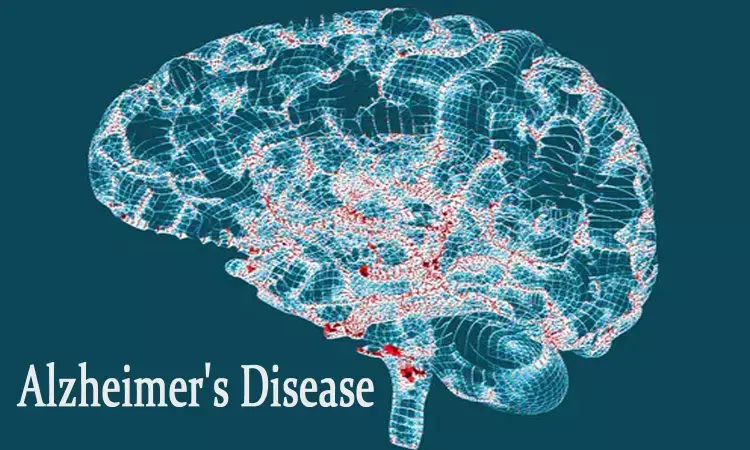- Home
- Medical news & Guidelines
- Anesthesiology
- Cardiology and CTVS
- Critical Care
- Dentistry
- Dermatology
- Diabetes and Endocrinology
- ENT
- Gastroenterology
- Medicine
- Nephrology
- Neurology
- Obstretics-Gynaecology
- Oncology
- Ophthalmology
- Orthopaedics
- Pediatrics-Neonatology
- Psychiatry
- Pulmonology
- Radiology
- Surgery
- Urology
- Laboratory Medicine
- Diet
- Nursing
- Paramedical
- Physiotherapy
- Health news
- Fact Check
- Bone Health Fact Check
- Brain Health Fact Check
- Cancer Related Fact Check
- Child Care Fact Check
- Dental and oral health fact check
- Diabetes and metabolic health fact check
- Diet and Nutrition Fact Check
- Eye and ENT Care Fact Check
- Fitness fact check
- Gut health fact check
- Heart health fact check
- Kidney health fact check
- Medical education fact check
- Men's health fact check
- Respiratory fact check
- Skin and hair care fact check
- Vaccine and Immunization fact check
- Women's health fact check
- AYUSH
- State News
- Andaman and Nicobar Islands
- Andhra Pradesh
- Arunachal Pradesh
- Assam
- Bihar
- Chandigarh
- Chattisgarh
- Dadra and Nagar Haveli
- Daman and Diu
- Delhi
- Goa
- Gujarat
- Haryana
- Himachal Pradesh
- Jammu & Kashmir
- Jharkhand
- Karnataka
- Kerala
- Ladakh
- Lakshadweep
- Madhya Pradesh
- Maharashtra
- Manipur
- Meghalaya
- Mizoram
- Nagaland
- Odisha
- Puducherry
- Punjab
- Rajasthan
- Sikkim
- Tamil Nadu
- Telangana
- Tripura
- Uttar Pradesh
- Uttrakhand
- West Bengal
- Medical Education
- Industry
Cholesterol plays a key role in Alzheimer's plaque formation, study finds

Cholesterol manufactured in the brain appears to play a key role in the development of Alzheimer's disease, find scientists from the University of Virginia School of Medicine.The cholesterol produced by cells called astrocytes is required for controlling the production of amyloid beta, a sticky protein that builds up in the brains of patients with Alzheimer's. The protein accumulates into insoluble plaques that are a hallmark of the disease. Many efforts have targeted these plaques in the hope that removing or preventing them could treat or prevent Alzheimer's.
The new findings offer important insights into how and why the plaques form and may explain why genes associated with cholesterol have been linked to increased risk for Alzheimer's. The results also provide scientists with important direction as they seek to prevent Alzheimer's.
"This study helps us to understand why genes linked to cholesterol are so important to the development of Alzheimer's disease," said researcher Heather A. Ferris, MD, PhD, of UVA's Division of Endocrinology and Metabolism. "Our data point to the importance of focusing on the production of cholesterol in astrocytes and the transport to neurons as a way to reduce amyloid beta and prevent plaques from ever being formed."
Alzheimer's Plaques and Cholesterol
While cholesterol is often associated with clogged arteries and heart disease, it plays important roles in the healthy body. The body makes cholesterol naturally so it can produce hormones and carry out other important functions. The new discovery from Ferris and her collaborators adds a new entry to cholesterol's list of responsibilities.
The work also sheds light on the role of astrocytes in Alzheimer's disease. Scientists have known that these common brain cells undergo dramatic changes in Alzheimer's, but they have been uncertain if the cells were suffering from the disease or contributing to it. The new results suggest the latter.
The scientists found that astrocytes help drive the progression of Alzheimer's by making and distributing cholesterol to brain cells called neurons. This cholesterol buildup increases amyloid beta production and, in turn, fuels plaque accumulation.
Normally, cholesterol is kept quite low in neurons, limiting the buildup of amyloid beta. But in Alzheimer's, the neurons lose their ability to regulate amyloid beta, resulting in plaque formation.
Blocking the astrocytes' cholesterol manufacturing "robustly" decreased amyloid beta production in lab mice, the researchers report in a new scientific paper. It's too soon to say if this could be mimicked in people to prevent plaque formation, but the researchers believe that further research is likely to yield important insights that will benefit the battle against Alzheimer's.
The fact that amyloid beta production is normally tightly controlled suggests that it may play an important role in brain cells, the researchers say. As such, doctors may need to be careful in trying to block or remove amyloid beta. Additional research into the discovery could shed light on how to prevent the over-production of amyloid beta as a strategy against Alzheimer's, the researchers believe.
"If we can find strategies to prevent astrocytes from over-producing cholesterol, we might make a real impact on the development of Alzheimer's disease," Ferris said. "Once people start having memory problems from Alzheimer's disease, countless neurons have already died. We hope that targeting cholesterol can prevent that death from ever occurring in the first place."
https://www.pnas.org/content/118/33/e2102191118
Hina Zahid Joined Medical Dialogue in 2017 with a passion to work as a Reporter. She coordinates with various national and international journals and association and covers all the stories related to Medical guidelines, Medical Journals, rare medical surgeries as well as all the updates in the medical field. Email: editorial@medicaldialogues.in. Contact no. 011-43720751
Dr Kamal Kant Kohli-MBBS, DTCD- a chest specialist with more than 30 years of practice and a flair for writing clinical articles, Dr Kamal Kant Kohli joined Medical Dialogues as a Chief Editor of Medical News. Besides writing articles, as an editor, he proofreads and verifies all the medical content published on Medical Dialogues including those coming from journals, studies,medical conferences,guidelines etc. Email: drkohli@medicaldialogues.in. Contact no. 011-43720751


